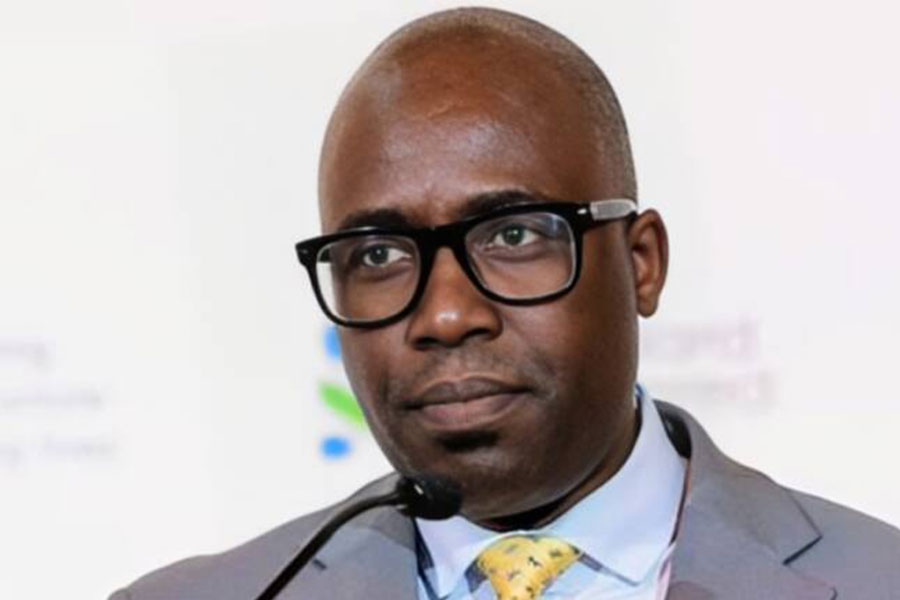
Verbatim | Apr 13,2024
Fortune: How is your project in Ethiopia and what has been the biggest challenge?
Juliana Hosken Wernek: Ethiopia is a very important country for us. We are happy to be doing business here. It is growing. We are very optimistic and have many customers. More recently, we have the vegetable seed business that also goes to Addis. We also work in agriculture, which is a very important market for us here in Ethiopia. No less is the personal care business, were we sell raw materials for several industries – cosmetics, shampoos, sunscreen.
How do you see the investment environment given the current political situation in Ethiopia, especially since your project is based in the Amhara Regional State?
As a company, we do not position ourselves in terms of politics. To decide on an investment, it is important for us to have a good idea of the economy, politics and societal needs. The need for our products, the need of the customers, the region, are taken into consideration. In Africa, we are looking at solutions. These are the conditions we look for in an investment, and it is why we are there.
There are many challenges to doing business in a country like Ethiopia. There are bureaucratic hurdles, lack of infrastructure and forex shortage, to mention a few. What has been BASF’s biggest obstacle thus far?
We are present in many emerging countries in the world. Volatility and instability informs what we do in our day to day business. As a challenge, we do have supply chain and logistics problems. But we have a creative and innovative team that puts solutions together to better serve customers. We are used to facing the challenges you mentioned, that is why we work with an agile team.
While investing in Ethiopia is not without challenges, there are huge opportunities for BASF. The Ethiopian government has a robust industrialisation plan in place that makes it favourable for investors. The growing population, proximity and good access to our markets are other advantages.
We are convinced that our investment in a new production facility in Ethiopia is a win-win situation, as we create permanent jobs for local people and have a meaningful impact on the local vegetable production sector at the same time.
When it comes to skilled labour, BASF supports developing employee skills through various courses and development plans. Through collaboration with the government and other industry players, we offer support with skills development in various sectors. We are proud of our workforce and enjoy a conducive and productive work environment. We are also collaborating with various universities and higher learning institutes.
With our BASF Kid’s Lab, we have collaborated with the German School to enhance the interest in science for students through fun-based experiments that are carried out in a safe environment by well-trained facilitators.
BASF has had its fair share of criticism, especially in terms of environmental sustainability. In fact, according to the Political Economy Research Institute of the University of Massachusetts Amherst, it was named one of the top five largest polluters of water and air. How is BASF trying to address these issues? Can they even be addressed in the near future?
We have environmental, health and safety at the core of our sustainability strategy. We have a commitment to improving our key performance indicators in various areas such as water management. For example, we are targeting to use recycled water in our plants. We want to have 93pc of all of our water to be recycled by 2030. We have been improving every year in these goals. You can see it in our sustainability reports. When it comes to our carbon footprint, we want to be net-zero by 2050, and with that, we have a lot of different investments and innovations we are working on to achieve this goal.
We are also proud to be a part of the Responsible Care Management System, which is certified by the chemical industry and sets very high standards on security and safety. We are also working with the Alliance to End Plastic Waste, a global initiative. Here in Ethiopia and Kenya, we are working to develop phosphate-free formulations for powders and detergents. BASF knows that sustainability is important and is part of our DNA.
Do you have any clients in Ethiopia you support on environmental sustainability?
Yes, for instance, we work with crop protection products. We partner with farmers and companies to train the former to better use personal protective equipment and apply better their products. For example, before COVID-19, we were training more than 200 farmers in technical applicators and better use of their products. We also bring new technologies to serve our customers in order for them to produce in a more sustainable way.
There is a high level of insecurity when it comes to the use of chemicals in agricultural production, especially in Ethiopia. Farmers are worried about how inorganic their products would be. What is your take on this?
This is a global topic. It is impossible to feed the world without technology. Producing food on a large scale without eliminating weeds, pests and diseases is hard. Crop protection is important in the increase of yields and the production of food. It takes working responsibility between the industry, farmers, users, government and the food value chain. Together, we have a better chance to ensure the proper use of crop protection. It is all about observing what is on the label and using what is recommended by the experts to secure the better use of our products.
So you think there will always be a trade-off between a certain level of environmental sustainability and food security?
Balance is the best solution. I come from a country – Brazil – where we have agro-ecological diversity and the climate is very favourable for agriculture. I know what it is like to produce in a climate like that, where you have the possibility of an all-year-round production of different crops. With a lot of incidence of diseases and weeds, it is difficult to manage on a large scale.
When you are talking about producing quality food, the use of technology is key. and we have such a regulated sector to approve the right products. I strongly believe we need to work on awareness of its safe use. If you say no, food security without crop protection is very difficult.
Do you have any plans to expand your operations in Ethiopia?
We are happy with the business we are developing. We have a lot of projects in the supply-chain area to facilitate the way we do business to accelerate the access of our products to our customers. We are looking at better ways to serve our customers and access more products in the time that they need them. We have a lot of space to grow with our technologies and help farmers increase yields and earn more from the land. Since we have the global experience, work in different climates and regions, we know we can contribute a lot to developing the Ethiopian market.
Some claim there are many BASF chemical products that are expired but in use. Any attempt to collect your products that have expired but are being sold by retailers?
BASF strongly condemns the sale and use of any expired agricultural chemicals, be it produced by BASF, or any other manufacturer.
All value chain stakeholders need to be informed and take appropriate care to handle and apply agricultural chemicals safely and responsibly. This is crucial for both crop and environmental safety, but especially for the personal health of the operator and produce consumer. We work with and sell our products to several distribution partners in Ethiopia, in accordance with international best practices, as well as local regulatory guidance.
Achieving a sustainable use of pesticides is a joint responsibility of our industry, agricultural advisors, the food value chain, governments and the product user. We promote a wide range of stewardship programs to help our farmers use our products safely – directly, through our distributors and via our industry associations. We believe that the best outcomes for people and the environment are most likely to be achieved by promoting and enforcing high standards for the safe use of these products.
Commercial Farming is not much developed in Ethiopia. It is a completely different story in North America, Europe and Asia. Why do you think African countries are lagging?
Different size farming has different needs and challenges. Commercial farming is the future. The development is coming. Farmers are each time more reformed, prepared. Information is coming and we have a lot of people helping. There is a good value chain that can serve those farmers to keep improving. I do not have one solution for that but it is a joint effort that we need to make if we want to have this development.
Do you perhaps think that you should serve the local market first then export, given the demand in Ethiopia?
It depends on what we are producing here. The vegetable seeds we produce here serve different blends and we export to different places in the world. It is the nature of the business we built. But I do not think it should be one thing or the other. We should have the balance of serving the local and export market.
On serving the local market, we have plans to unveil a facility that uses solar panels only. We also have smallholder farmers producing using our seeds. It is not all going outside. The technology, the way we produce using greenhouses, is also being applied for the local market. You will be able to see that later in the year.
The farmers are making much more money using our seeds. They are being supported from the moment they are preparing the land up to how they can market the product. The facility was inaugurated two years ago, and we have only now started selling and distributing the seeds locally as well as exporting.
While confirming our interest in developing business in Ethiopia, and always looking at the needs for localisation of activities, creating local jobs and value, we need significant local demand and complementary export opportunities, critical mass, infrastructures, eventually raw materials availability and integration, before we would consider further investment.
These raw materials are not available in East Africa due to the lack of an established petrochemical value chain and would need to be imported. This would mean that continuous production which gives economies of scale would be jeopardised and would not deliver in value, and sustainably to the local customers. We concentrate our efforts on bringing innovative and sustainable technologies to supply the local industries and help them to produce high-quality products to the local market.
The other concerning issue is climate change. What is your contribution to this?
We have several commitments on climate change. We are working with targets as we have technologies that can support a lot of the projects we have been developing. An example is an initiative in Nigeria on plastic recycling. We have a green energy project in Morocco, including new ways of producing energy using hydrogen.
BASF has been here for over two years now. If a new investor was planning to come to Ethiopia, what would be your advice for them?
Ethiopia has great potential and good agro-climate and ecological conditions here. We have good reasons to bet to develop our market here. We are happy with our business here and are very optimistic about the future.
Here is a good example of the industries we serve, such as the hygiene and personal and home care industry. There are BASF products inside the likes of Ajaz and Omo. In the food industry, we work with food fortification and nutrition. We are in pharmaceuticals, footwear, makeup, paints and cars. This is what is exciting. Our portfolio is huge so we can contribute to the industries in Ethiopia to produce better quality goods. This is our inspiration.
PUBLISHED ON
Nov 06,2021 [ VOL
22 , NO
1123]

Verbatim | Apr 13,2024

Editorial | May 21,2022

Radar | Feb 05,2022
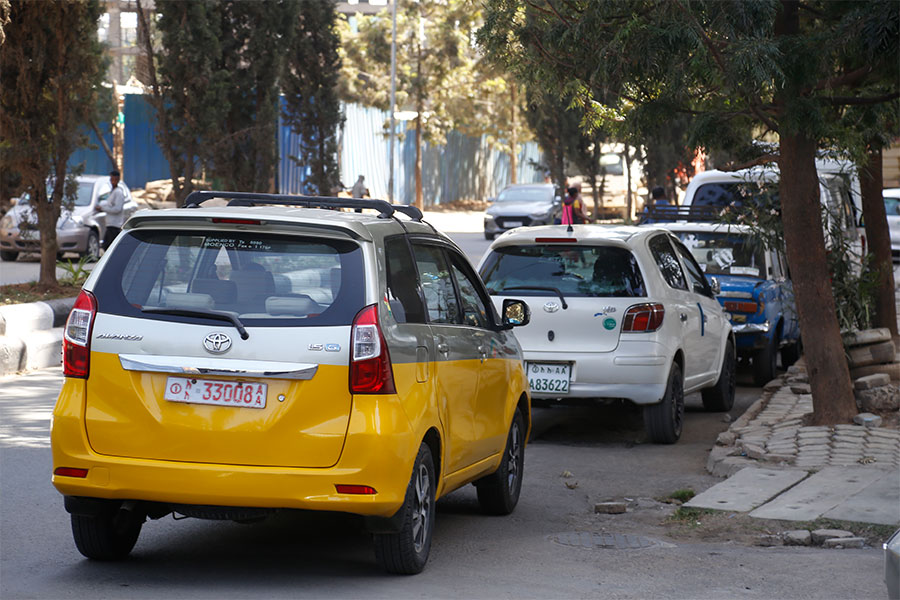
Featured | Mar 26,2022

Fortune News | Jul 11,2021

Fortune News | Jul 11,2021
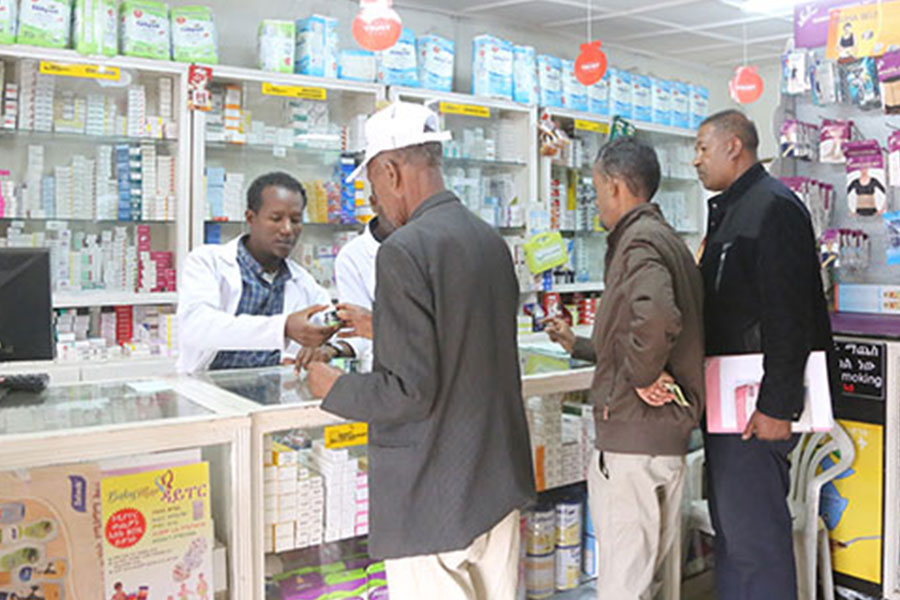
Fortune News | Mar 30,2022
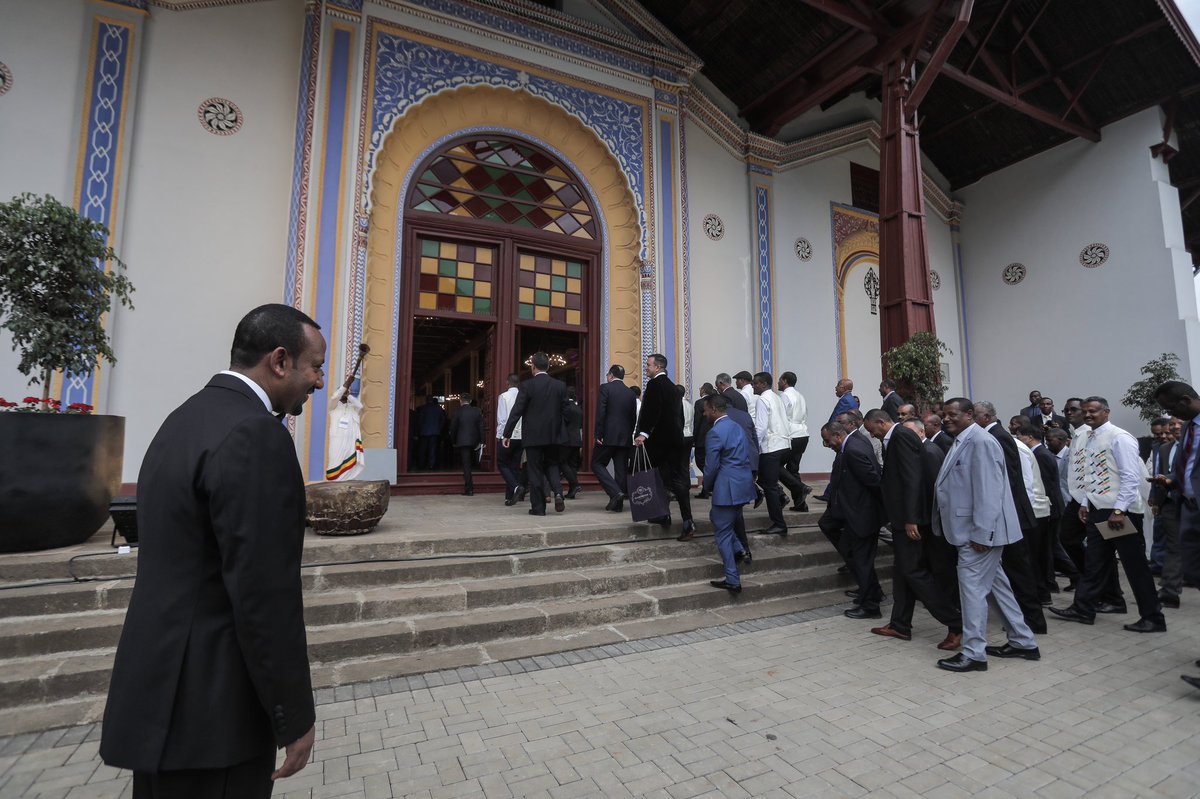
View From Arada | May 25,2019

Editorial | Nov 20,2021
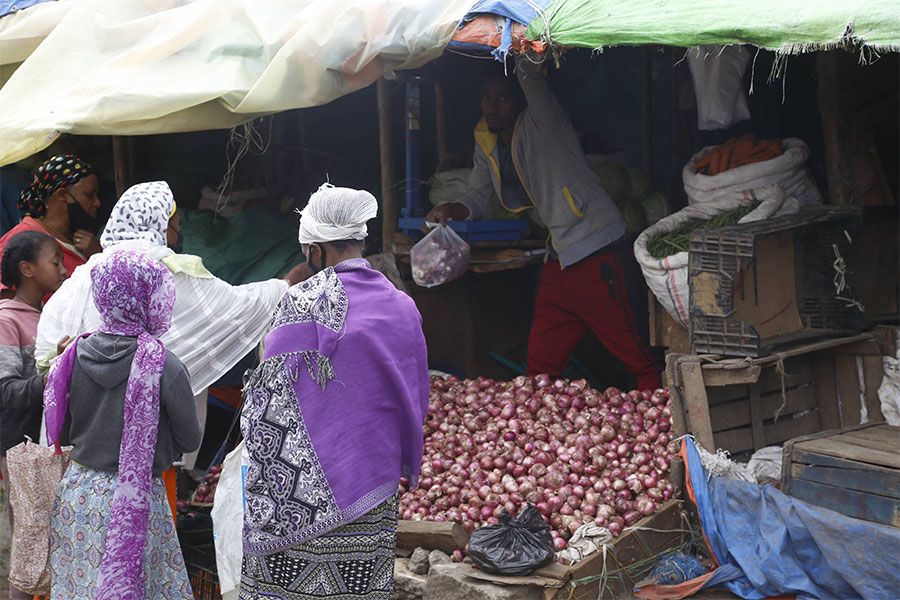
Agenda | Sep 26,2021

Dec 22 , 2024 . By TIZITA SHEWAFERAW
Charged with transforming colossal state-owned enterprises into modern and competitiv...

Aug 18 , 2024 . By AKSAH ITALO
Although predictable Yonas Zerihun's job in the ride-hailing service is not immune to...

Jul 28 , 2024 . By TIZITA SHEWAFERAW
Unhabitual, perhaps too many, Samuel Gebreyohannes, 38, used to occasionally enjoy a couple of beers at breakfast. However, he recently swit...

Jul 13 , 2024 . By AKSAH ITALO
Investors who rely on tractors, trucks, and field vehicles for commuting, transporting commodities, and f...

Jul 5 , 2025
Six years ago, Ethiopia was the darling of international liberal commentators. A year...

Jun 28 , 2025
Meseret Damtie, the assertive auditor general, has never been shy about naming names...

Jun 21 , 2025
A well-worn adage says, “Budget is not destiny, but it is direction.” Examining t...

Jun 14 , 2025
Yet again, the Horn of Africa is bracing for trouble. A region already frayed by wars...